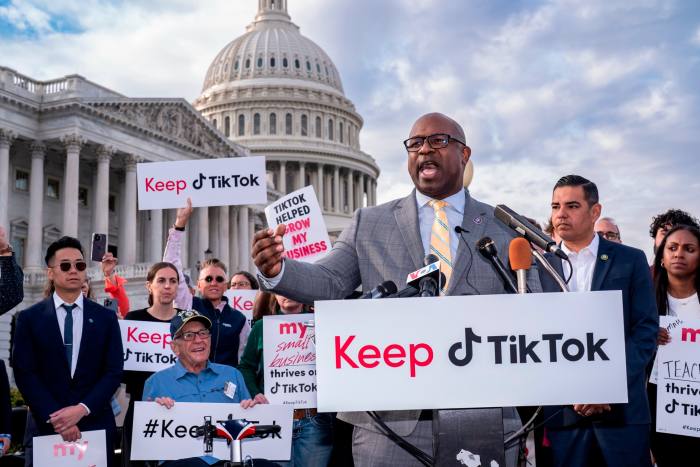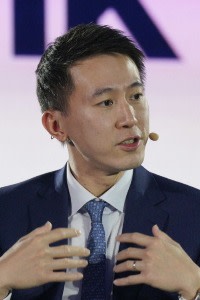TikTok’s chief executive Shou Zi Chew will face attacks on multiple fronts when he testifies before Congress on Thursday, in an appearance that will help to determine the social media app’s future in the US.
Bipartisan calls to ban the platform have grown over fears it could be used by the Chinese Communist party for espionage or propaganda purposes. However, the 40-year-old will tell the energy and commerce committee of the House of Representatives that TikTok’s parent company ByteDance, based in Beijing, is “not an agent of China”, according to prepared remarks released in advance of the hearing.
ByteDance has also been asked by the Committee on Foreign Investment in the United States (Cfius) — an inter-agency panel that evaluates foreign investment — to sell TikTok in the US in order to distance it from Beijing. This came even after it spent around $2bn on a partnership with Oracle designed to safeguard data and content from Chinese influence.
“TikTok’s parent company, ByteDance, was founded by Chinese entrepreneurs, but has evolved into a global enterprise since its founding,” Chew will say, adding that TikTok has not shared and would not share data on its 150mn US users with China.
Whether these demands come to a head will hinge in part on how Chew, a former Goldman Sachs banker from Singapore, handles questioning from representatives on the company’s links to Beijing. They will also voice other concerns about the app, including whether it is safe for minors and has adequate moderation processes.
Ahead of the hearing, TikTok has made a frantic public relations push. This has included inviting to Washington certain creators, many of whom make livelihoods advertising on behalf of brands to their large followings on the platform, to help lobby politicians against a ban, according to a report by The Information that TikTok confirmed.
On Wednesday, more than 20 creators held a press conference on the Capitol grounds with Jamaal Bowman, a Democratic House member, to protest against any ban. The New York representative has emerged as one of the platform’s few allies on Capitol Hill.
Surrounded by influencers holding signs with slogans such as “keep TikTok” or “my small business thrives on TikTok”, Bowman said that Republicans had created “a Red Scare around China”. He said “it poses about the same threat that companies like Facebook and Instagram, and YouTube and Twitter, pose.”
In recent weeks members of the company’s UK press team have also been flown to Washington for preparations ahead of the Congress appearance. One person familiar with the preparations said the company was throwing everything at Chew’s personal performance. “They are very concerned about the banning of TikTok, and think it could go either way,” the person said.
Nevertheless, TikTok’s critics remained sceptical before the hearing.
“While I appreciate Mr Chew’s willingness to answer questions before Congress, TikTok’s lack of transparency, repeated obfuscations, and misstatements of fact have severely undermined the credibility of any statements by TikTok employees, including Mr Chew,” said Mark Warner, a Democrat who chairs the Senate select committee on intelligence.
Warner is one of the lead sponsors of a new White House-backed bill that would give the administration new powers to ban Chinese apps that pose security threats, including TikTok.



